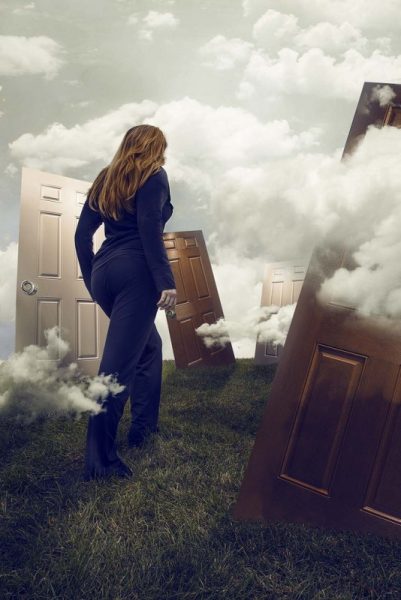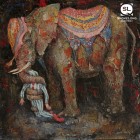This story joins a long tradition of moon stories from Calvino’s “The Distance of the Moon” to the silent film classic Trip to the Moon, to the Japanese “The Tale of the Bamboo Cutter.” The boy in your story is able to capture a great many things, but here we focus on the moon. Can you talk about the conception of this story and your decision to settle on this heavenly body?
The stories I write start with an image or a line or a title. There’s a spark or an impulse. One night, that scene from It’s A Wonderful Life, where George Bailey creeps out his date by talking about getting her the moon and feeding it to her and having moonbeams shoot out of her fingertips, popped in my head. I thought, “What if you really could just pull the moon down? How would you do it? What would it feel like?” The first paragraph came out naturally when I sat down to write. And then it sat for a few days. Thomas got the moon. Now, what the hell was he going to do with it?
The boy in your story has the uncanny ability to steal parts of the world, the heavens. And yet, this world seems to be largely our own. Do many of your stories punctuate reality with the fantastic and surreal? How is it different navigating incorporating a fabulist premise in a piece of flash fiction versus in a longer piece?
This was the first piece where I tried my hand at this type of magical realism/surreal writing. I’ve been fortunate enough to have a strong writing group that encourages risk-taking and breaking the molds we create for ourselves. I’ve since written my best short pieces to date. Most are in this vein and some are longer, and I don’t think there’s a difference. Once you go for it and are confident in your storytelling, you don’t need to explain the rules of the world at every turn. Thomas wanted the moon? He got it. Simple. After I was comfortable with that, it was easy and hell of a lot of fun. What else could he get? Where could he go?
Is the moon truly a wasteland? And if you could steal anything in the world (hell, in the universe) as a gift for someone, what would it be and why?
There are a few of theories on how the moon was formed. One is that an asteroid or another planet crashed into the Earth and sent debris into space. The other is that the Earth, in its early days, spun incredibly fast, a day was only a couple of hours, and it shot parts of itself into orbit. In those scenarios the moon was made after a collision, or from things the Earth couldn’t hold on to, if we want to be liberal with the latter theory. Those notions worked for me here in this story, at least as a metaphor. The moon as the sum of all our unattained wants and desires, of our heartbreaks and regrets, was a driving force once I figured it out. It’s just sitting out there, so close, so beautiful—but created from the things that were shed in moments of stress and growth.
What would I steal? Goddamn, that’s a good follow-up question! There’s a Raymond Carver poem, “My Boat.” I’d steal Carver’s boat and put all my friends and people I’ve ever loved on it.
There’ll be a place on board for everyone’s stories.
My own, but also the ones belonging to my friends.
Short stories, and the ones that go on and on …
The ones already finished, and the ones still being written …
The idea is simply to enjoy ourselves and not get scared.
We’ll eat and drink and laugh a lot, on my boat.
You are both a musician and a writer (and a teacher of these things as well). Has your background in music influenced your writing or vice versa?
Absolutely—it goes both ways. Writing and playing music are both so similar in approach to discipline and craft and yet so different in the way the brain fires. Music is most often instant in its creation. It happens and then it’s gone, whereas writing takes time and there’s a permanent trace. I’ve probably become a better songwriter and player because of writing. Crafting a real song takes time—just like a story. I always tell my writing students, “There is no such thing as writing. There is only rewriting.” That same notion applies to music. Every good song starts with a seed that needs to grow and be tended to. It’s very rare for creation to exist in a vacuum in either medium. That said, with music, there’s this release of energy that’s instant that writing doesn’t typically produce and sometimes I try to chase that, that raw, no-rules punk energy. Those first drafts are usually dog shit, but they’re sometimes the most fun to write.
Are you currently working on anything?
I’m working on a chapbook right now. The stories are in the same vein as “The Moon Is a Wasteland,” and I’m hoping to place it with a press by the end of the year. I’m also shopping a novel that is totally different than this story. The novel is called Panic Years, and it’s about rock-and-roll and sex and death, and fucking going for it. It’s based on my time in bands and touring the country—being young and hungry and trying to capture your dreams.


